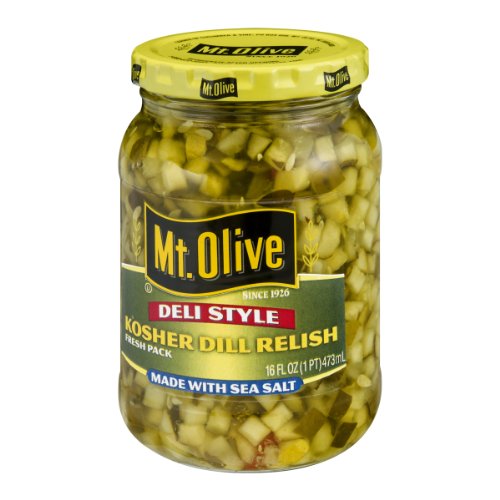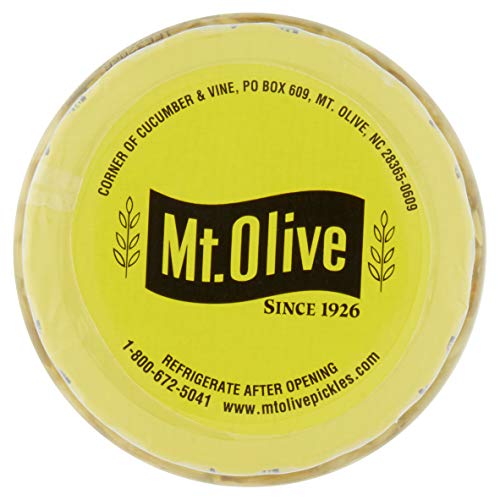


Kosher Deli Style Dill Relish by Mt. Olive
Category: pickle

The Essentials
Kosher Gluten-Free Vegan Low-Fat Cholesterol-Free Snack
Elevate your snack time with our unique and nutritious Kosher Gluten-Free Vegan Snack. Perfect for anyone with dietary restrictions or a focus on health, our snack combines all the goodness of natural ingredients with the convenience of a quick and tasty treat.
Key Features and Benefits
- Kosher Certification: Our snacks are certified Kosher, ensuring they meet strict religious dietary laws and are meticulously prepared without any non-Kosher additives.
- Gluten-Free: Enjoy complete peace of mind knowing these snacks are free from gluten, suitable for individuals with gluten sensitivities or celiac disease.
- Vegan: Crafted using only plant-based ingredients, our snacks are perfect for vegans and vegetarians who avoid animal products.
- Low-Fat: Rich in flavor without the guilt. Our snacks are designed to be low in fat, making them a healthier option for those watching their calorie and fat intake.
- Cholesterol-Free: Our snacks are cholesterol-free, contributing to heart health and a better overall wellness routine.
Why Choose Our Snack?
Our snacks are not only healthy but also delicious. Perfect for a quick snack, a satisfying meal replacement, or a delightful addition to any diet. Whether you’re looking for a nutritious option or have specific dietary needs, our Kosher Gluten-Free Vegan Low-Fat Cholesterol-Free Snacks are your go-to choice.
Try them today and experience the delicious and healthy difference!
















